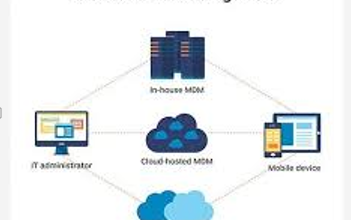Customs Broker Software Solutions for Streamlined Import and Export Management

Customs broker software is designed to simplify the complex process of managing international shipments, compliance, and documentation. It automates many manual tasks, reducing errors and speeding up customs clearance. Its core function is to streamline operations for customs brokers and importers by integrating filing, compliance checks, and inventory management into a single platform.
This software often includes features like electronic filing, tariff classification, and real-time tracking. By adopting a customs broker solution, companies can ensure regulatory compliance, reduce administrative burdens, and improve communication across supply chain partners.
Organizations that handle frequent cross-border shipments benefit from advanced tools that support multiple regulatory requirements and provide up-to-date data handling. These solutions improve accuracy, save time, and help avoid costly delays or penalties in customs processing.
Key Features of Customs Broker Software
Customs broker software offers several essential capabilities that streamline operations and improve accuracy. It efficiently manages documentation, ensures compliance with regulations, provides shipment visibility, and connects directly with customs authorities.
Automated Customs Documentation
This feature simplifies the preparation and submission of import/export documents such as invoices, packing lists, and bills of lading. The software automates data entry and generates required paperwork, reducing manual errors and processing time.
Many platforms incorporate AI-driven tools that extract invoice data and predict HS codes for classification. This automation speeds customs clearance and decreases the risk of delays caused by incorrect or missing documentation.
By managing documentation digitally, brokers can track submissions and status updates in a centralized system, improving workflow and accountability.
Regulatory Compliance Management
Customs broker software helps maintain compliance with complex and varying international rules. It updates users on changes in regulations, tariff schedules, and filing requirements to prevent violations.
The software often includes specific support for ISF, AMS, AES, and other mandatory filings, ensuring timely and accurate submissions. It also tracks necessary registrations and certifications related to customs processes.
This feature minimizes the risk of penalties or shipment holds by automating compliance checks and creating audit trails for regulatory reviews.
See also: Technology in the Kitchen: How Innovation Shapes Private Jet Catering
Real-Time Shipment Tracking
Real-time tracking provides full visibility into the status of shipments throughout the customs clearance process. Brokers and their clients can monitor location updates, duty assessments, fees, and customs responses.
By consolidating this information into a single dashboard, the software enhances transparency and allows prompt action if issues arise. This reduces uncertainty and improves coordination between stakeholders.
Real-time alerts notify users of critical events, such as inspections or release approvals, facilitating faster decision-making and smoother logistics.
Integration with Customs Authorities
Customs broker software often supports direct electronic communication with government customs systems like ASYCUDAWorld or ACE. This integration enables automated filing of customs declarations and related documents.
Such seamless data exchange reduces manual input and transcription errors, accelerating customs processing times. It also ensures consistency and compliance with official filing formats and protocols.
The software tracks submissions and responses, helping brokers manage multiple customs jurisdictions efficiently without needing separate tools for each.
Choosing the Right Customs Broker Software
Selecting customs broker software requires attention to how well the system can grow with the business, ease of use, and how it handles sensitive data. The right software must support compliance, reduce manual errors, and maintain operational efficiency under various conditions.
Scalability and Customization Options
The software should adapt as the company expands or its needs change. Scalability means the ability to handle increased transaction volume and additional features without performance loss.
Customization is equally important—it allows users to tailor workflows, reporting, and compliance checks to specific trade requirements or business processes. Look for software offering modular components or API integrations to connect with existing enterprise systems.
Flexibility in entering different tariffs, duty rates, and regulations for multiple countries ensures that the software remains relevant across various import/export scenarios. This adaptability reduces the need to switch platforms as operations evolve.
User Experience and Support
A streamlined, intuitive interface reduces training time and minimizes data entry errors. Clear dashboards and automated alerts help users stay ahead of deadlines and compliance issues.
Comprehensive customer support is vital. This includes quick response times, knowledgeable technicians, and access to updated regulatory information. Training resources, both live and on-demand, help users maximize the software’s potential.
Regular updates that address user feedback and regulatory changes ensure the platform remains efficient. Software that is difficult to navigate or lacks adequate support can cause costly delays and compliance risks.
Data Security and Reliability
Handling customs data involves sensitive financial and commercial information, making security paramount. The software should include encryption both in transit and at rest, alongside regular security audits.
Reliability is measured by system uptime and data backup processes. Downtime during shipment cycles can disrupt operations and cause fines.
Look for features such as multi-factor authentication and detailed access controls to prevent unauthorized access. Compliance with industry security standards and data privacy regulations, such as GDPR or PIPEDA (for Canada), confirms the software’s commitment to protecting critical information.





